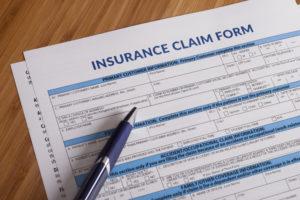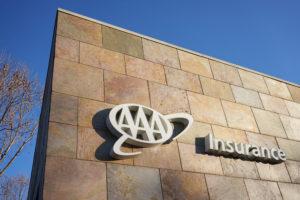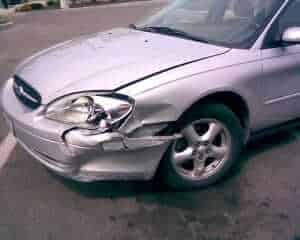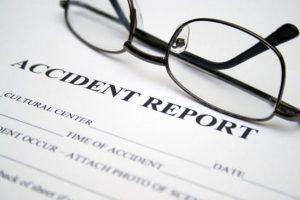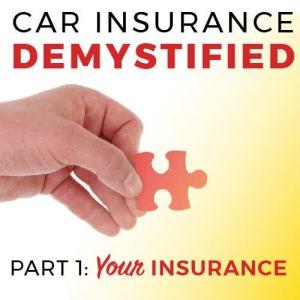
In addition to the initial shock and pain of car accident injuries, victims often face exorbitant healthcare bills, and some cannot return to work. These financial losses can be staggering, which is why drivers are required to carry auto liability insurance that meets the legal limits.
But what you don’t know about insurance can hurt you if and when you ever need to file a claim. Understanding the requirements of your policy, what coverage it provides, and what the insurance company must do if you file a claim can go a long way to protect your rights if you’ve been injured in an accident.
The Basics: Why do You Need to Pay for Insurance?
Every state requires drivers to carry a minimum amount of liability insurance. For example, in Louisiana, you must carry the minimum liability insurance coverage of $15,000.00 per person and $30,000.00 per accident for bodily injury. There is an additional limit for property damage.
Other states, like Alabama, Mississippi, and Arkansas, require even more coverage—these set their minimums at $25,000.00 per person and $50,000.00 per accident.
Failing to carry the state’s minimum insurance coverage can expose you to costly tickets, fines, and even a suspension of your driver’s license. If you get into an accident, you will be personally liable for any injuries and damage you cause.
Failing to Carry Auto Insurance Has Consequences
In some states, like Louisiana, failing to carry insurance coverage will also mean you are barred from recovery for damages to your vehicle and any personal injuries under the “No Pay, No Play” statute.
This means there is no recovery by the owner or operator for the first $15,000 of bodily injury and $25,000 of property damage arising out of a motor vehicle accident. This means that if you sustain serious injuries, you can still make a claim against the at-fault insurance company; however, the first $15,000 of your bodily injury claim is deducted.
Other Types of Insurance Coverage Is Optional But Recommended
Most states—including all four in the Gulf South—require all drivers to have auto liability insurance in varying minimum amounts. However, other types of auto insurance coverage are also available, and you may want to consider these as an investment that will reduce your stress and make recovering compensation easier if you are ever in a crash.
These could include:
- Uninsured and underinsured motorist coverage: When another driver fails to carry the required liability coverage and causes a crash, this policy will pay for your damages in lieu of the at-fault driver’s policy. It also covers hit-and-run accidents when the driver is not identified. In many states, it automatically comes with your liability coverage, and you must opt out in writing.
- Collision coverage: Collision insurance pays for repairs to your vehicle after a crash regardless of the cause or fault. However, there is a deductible you must pay to file a claim. If you financed or leased your car, this optional coverage may be required.
- Comprehensive coverage: Comprehensive coverage pays for damage to your vehicle in situations other than collisions. This could include falling trees or other objects, floods, theft, fires, and more. Your bank or leasing company may require you to have comprehensive coverage until you pay off your car.
- Medical expenses: Medical expense coverage will pay for the policyholder’s medical bills for a certain length of time and up to a set amount following a crash. These policies are no-fault, so they will pay for your care even for a crash you caused or if the at-fault driver’s liability insurance is not available for some reason.
- Towing: Most insurers offer towing and roadside assistance for an additional fee. You should weigh the cost and services available through your insurer with services from AAA, Onstar, your car manufacturer, and others.
- Rental car: If you cannot drive your vehicle after a crash and a temporary replacement is necessary during repairs, having rental car coverage can provide you with a free or discounted vehicle.
You may have heard about personal injury protection (PIP) policies, as well. This is especially true if you ever lived in a state that has no-fault car insurance laws. This is a no-fault policy that pays out for the policyholder’s basic expenses following a crash. These policies are not available in Louisiana, Mississippi, or other states with fault-based car accident laws.
For a free legal consultation, call 800-537-8185
TIP: Providing Electronic Proof of Auto Insurance
All drivers are required to carry proof of auto insurance, and law enforcement officers are authorized to inspect that proof during a traffic stop or while investigating a car accident. Until recently, officers only accepted a printed proof of insurance card or other insurance documentation. However, in the past decade, states across the U.S. have passed laws allowing law enforcement officers to accept electronic proof of insurance. Today, in every state but New Mexico, electronic proof of insurance can be presented on a phone, tablet, or another electronic device.

Next Steps: Understanding Why an Insurance Claim Is Denied
Unfortunately, insurance companies are notorious for denying and undervaluing claims. Before you take action because your claim has been denied, you need to carefully review your policy and the letter denying your claim. This letter will explain the insurance company’s reasoning.
Insurance companies may deny claims—even those of their own policyholders—for many reasons. Some of the most common include:
You did Not Pay Your Premium on Time
You may be tempted to skip an insurance premium if you’re facing tough financial times. However, insurance companies can cancel your coverage if they do not receive their premiums after a certain date.
You Failed to Notify the Insurance Company of Pertinent Changes
Certain, seemingly small, changes could nullify your coverage. For example, be sure to let your insurer know if a new family member — such as your teenage child — starts driving your car. Your plan may not cover them if they get into a crash.
You should also inform your provider about a new car purchase because it may affect your policy. Insurance companies usually offer a grace period of a few weeks, but if you wait too long, then you may not be covered in the event of an accident.
You Allowed Someone Who Is Not Covered to Drive Your Car
It may be generous of you to lend your car to friends and family. However, depending on the terms of your insurance coverage, an insurer may refuse to pay a claim if someone who is not on your plan gets into an accident.
If this happens to you, you should determine whether the driver’s policy will provide non-owner car insurance for the accident.
Other Reasons for an Insurance Claim Denial Based on Your Own Policy
Other reasons why you may receive a denial letter after filing a claim with your own insurance company include:
- You let your driver’s license expire: If your license expires and you forget to renew it, you will not be covered if you get into a wreck.
- You do not have coverage for this type of claim: A denial may mean you do not have the type of coverage you are seeking, such as rental car insurance for a temporary vehicle. This can also happen when you file a claim under your uninsured motorist coverage and later learn that the other driver does have insurance.
Click to contact our personal injury lawyers today
Fact Check: What Is Liability Insurance Versus Comprehensive Coverage?
Liability coverage will only cover the damage you cause to someone else’s property or the injuries they suffer. Your policy pays for the victims of a crash you caused. Likewise, the at-fault driver’s liability policy pays for your losses after an accident.
In contrast, comprehensive insurance will cover damage to your own vehicle following a non-crash incident. Collision coverage provides money to repair your vehicle after an accident regardless of fault.
Has the Insurance Company Denied Your Accident Claim?
If you’ve been injured in an accident, but your claim has been denied, contact us for a free case evaluation. We work on a contingency-fee-basis. You may be eligible to file a claim for medical costs, emotional distress, and further damages. You can fill out our free case evaluation form to see if you are eligible for a claim.
An auto accident attorney at the Morris Bart law firm will assist you in the evaluation process. Initial consultations are free. We have office locations throughout Louisiana, Mississippi, Alabama, and Arkansas. Call us today.
Questions?Call 800-537-8185
to find a Morris Bart office near you.


